
Explaining & Reassuring
Reassure kids to ease their confusion and fears.
In the most difficult moments, remember to “REASSURE” children:
Reach out, hold their hand or put an arm around them, and begin the conversation. You might say, for instance, “Dad is not here anymore because he died. When a person dies, his body stops working. The heart stops beating and the body stops moving, eating, and breathing.” Explain that death is a natural part of life.
Encourage them to ask any questions, and let them know that you will answer as best as you can. But remember it’s okay to not have all the answers.
Assure them that even though one parent died, it doesn’t mean the other parent will die, too. You might say, “A person can’t promise that they won’t die, but we will take care of ourselves as much as we can.” Or, “It’s our job to enjoy our lives, stay healthy and safe, and let people know how much we love them.”
Sometimes children may not realize death is permanent. They may ask questions such as, “When is Daddy coming back?” Try to use terms such as “died” and “dead.” Although phrases like “sleeping” and “passed away” seem gentler, they may be confusing.
Soothe them by giving big hugs or offering a comfort object to hold, such as a stuffed animal.
Understand that you may have to repeat this conversation, especially for younger children. Have patience and know that children will come to understand over time.
Remind them that you are here to listen and to help. Although no one will ever take the place of the parent who died, many people love them and are here to help.
Explain that they will be cared for. Offer examples of how you and other special family members and friends will be there for them.
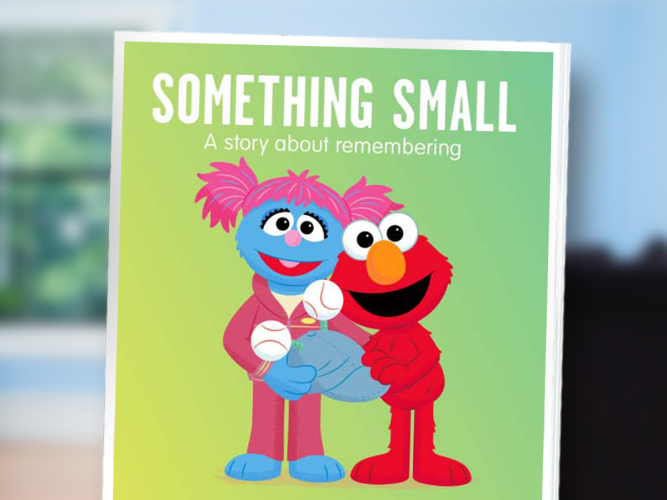
Something Small
Show children that even a small memory can help us remember loved ones.
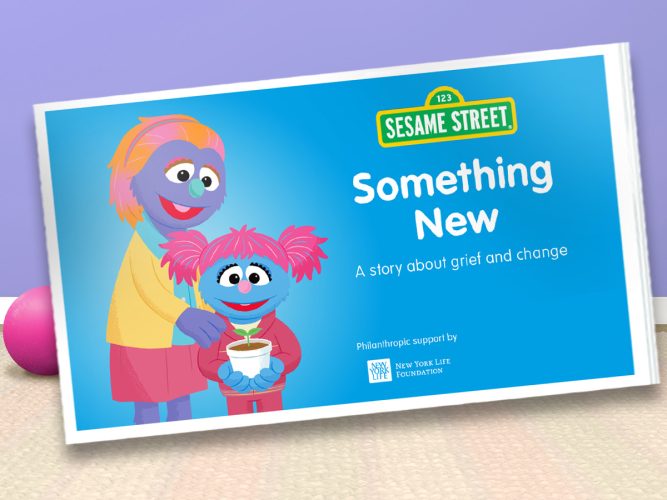
Something New
In this story, Elmo’s cousin Jesse helps remind children that big changes can mean new opportunities to learn and grow.
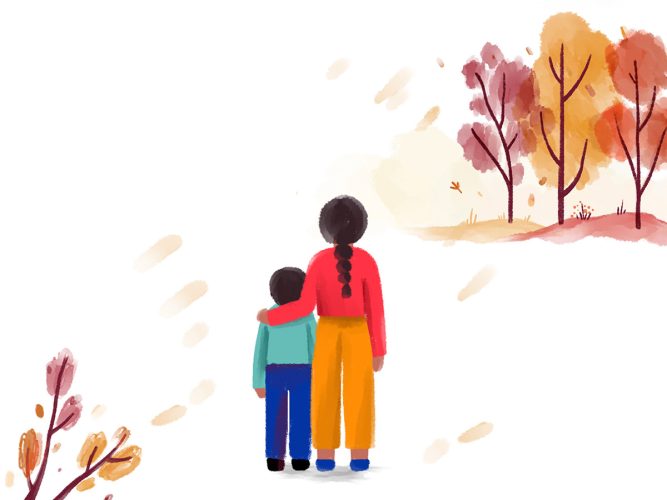
Growing as We Grieve
Parents and caregivers, reflect on your own experience of grief and hear what has helped other families cope, thrive, and find joy.
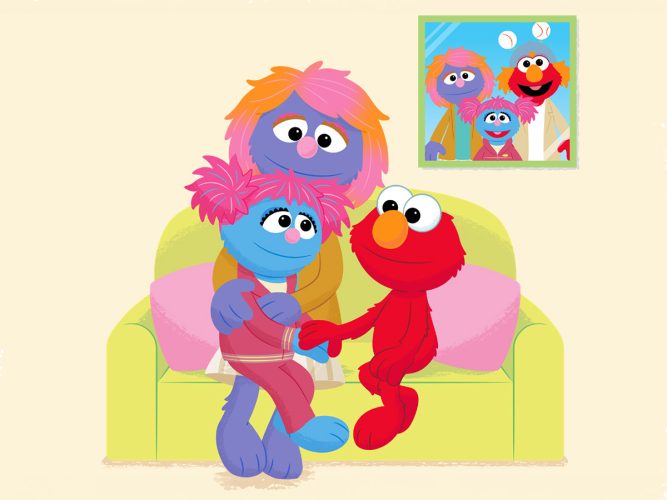
Growing as They Grieve
A special guide for providers supporting children who are grieving.

Supporting Grieving Native American Children and Families
Learn ways to support Native American children and families who are grieving with compassion and cultural humility.
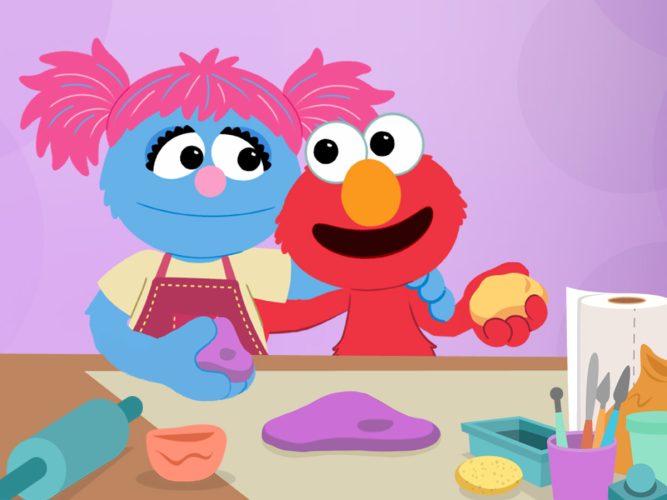
Express Yourself with Elmo and Jesse
Help a child check in with and express their feelings with these interactive creative activities.

Grieving and Growing: Helping Families Navigate Bereavement Together
